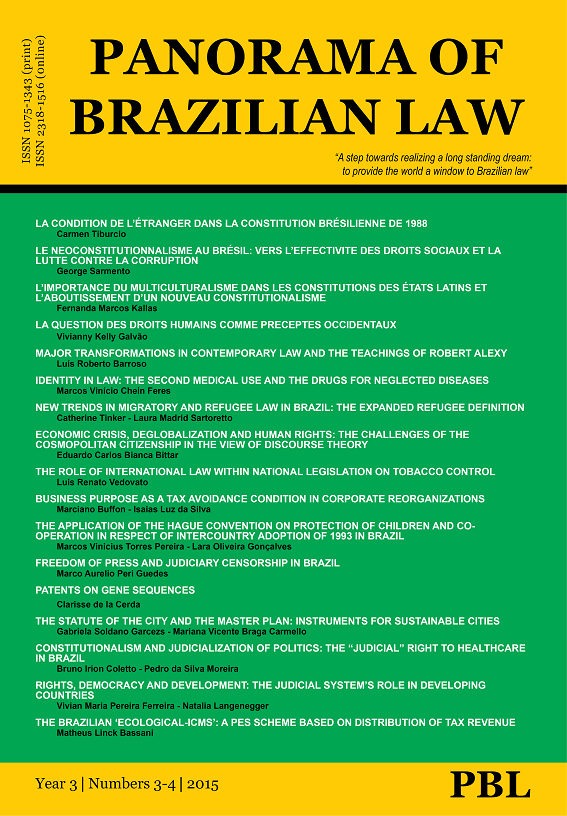THE ROLE OF INTERNATIONAL LAW WITHIN NATIONAL LEGISLATION ON TOBACCO CONTROL
DOI:
https://doi.org/10.17768/pbl.y3.n3-4.p197-221Resumen
The present article, taking into account advances in international rights and the need for domestic implementation of Framework Convention on Tobacco Control (FCTC) standards, has the objective of analyzing the competence to bring domestic and international regulations to fruition, with the purpose of creating coordinated public policies for tobacco control. So, it is possible to argue that the FCTC, by means of its guidelines, laid down at the Conferences of the Parties (COPs) and which are binding to all members states of the convention, paves the way for international regulation. Domestically, such regulation has to observe DOP guidelines, there being leeway for organizations like Brazil’s ANVISA to bring those guidelines into action, such as the one related to FTCT articles 9 and 10, which limit the use of flavour additives in tobacco products, as a way of implementing international standards within the country. There is also no conflict between free enterprise and tobacco control given that, as stated by the Constitutional Court of Colombia in a process involving the constitutionality of restrictions to tobacco advertising, this is a market that should not be stimulated, but rather merely tolerated.
Descargas
Publicado
Cómo citar
Número
Sección
Licencia
Panorama of Brazilian Law employs Open Journal Access policies.
Authors are fully and exclusively responsible for their submissions.
Authors who publish with this journal agree to the following terms:
- Authors retain copyright and grant the journal right of first publication with the work simultaneously licensed under a Creative Commons Attribution-NonCommercial-ShareAlike 4.0 International License that allows others to share the work on a non-comercial basis with an acknowledgement of the work's authorship and initial publication in this journal and indicating if any changes were made. If you remix, transform, or build upon the material, you must distribute your contributions under the same license as the original.
- Authors are able to enter into separate, additional contractual arrangements for the non-exclusive distribution of the journal's published version of the work (e.g., post it to an institutional repository or publish it in a book), with an acknowledgement of its initial publication in this journal.

